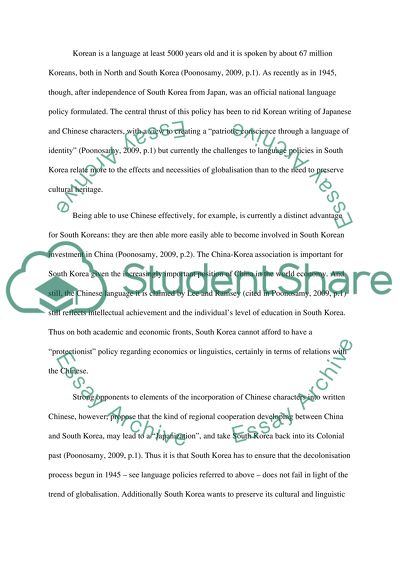Cite this document
(“Language Planning and Language Issues: South Korea Research Paper”, n.d.)
Retrieved de https://studentshare.org/english/1391869-language-planning-and-language-issues-south-korea
Retrieved de https://studentshare.org/english/1391869-language-planning-and-language-issues-south-korea
(Language Planning and Language Issues: South Korea Research Paper)
https://studentshare.org/english/1391869-language-planning-and-language-issues-south-korea.
https://studentshare.org/english/1391869-language-planning-and-language-issues-south-korea.
“Language Planning and Language Issues: South Korea Research Paper”, n.d. https://studentshare.org/english/1391869-language-planning-and-language-issues-south-korea.


